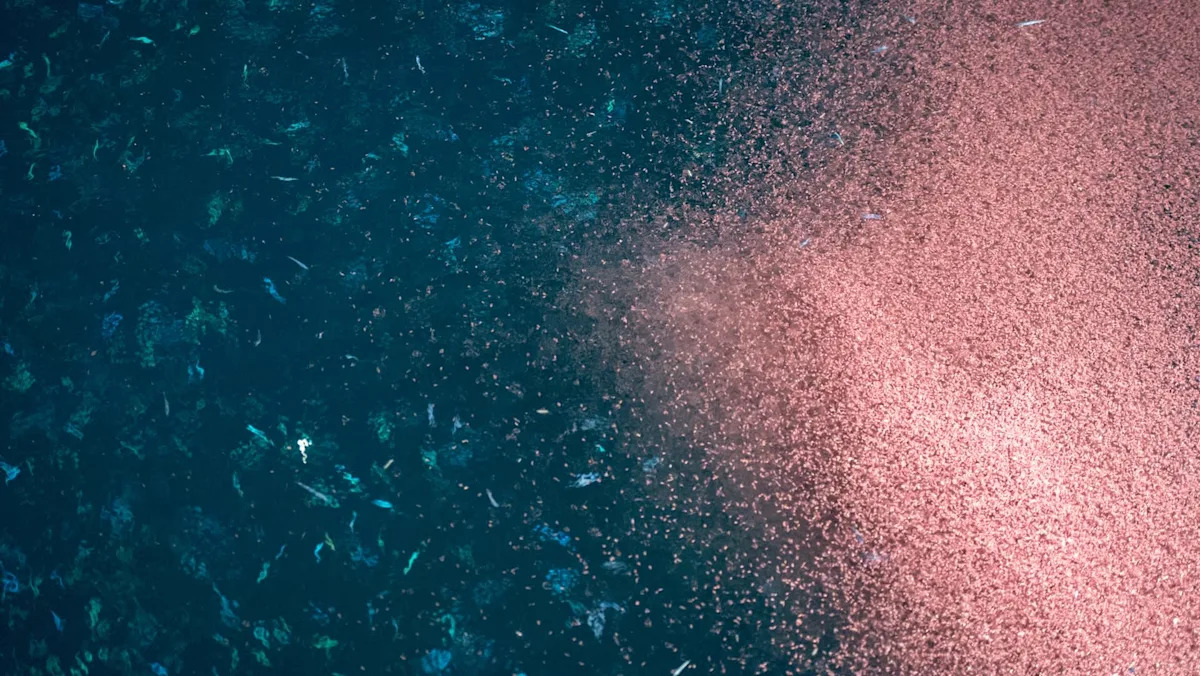Home / Environment / Microplastics Disrupt Krill's Billion-Dollar Carbon Sequestration Role
Microplastics Disrupt Krill's Billion-Dollar Carbon Sequestration Role
14 Oct
Summary
- Krill play vital role in sequestering carbon, worth $4-46 billion annually
- Microplastics cause krill to release carbon-rich boluses 3 times more frequently
- Reduced carbon sequestration by krill could lead to higher atmospheric CO2 levels

According to a study published in October 2025, Antarctic krill, a tiny crustacean, play a vital role in the ecosystem by sequestering carbon worth between $4 billion and $46 billion per year. Krill feed on phytoplankton and discharge carbon-rich particles called boluses, which sink to the ocean floor, effectively removing carbon from the atmosphere.
However, the same study has revealed that microplastic pollution might interfere with krill's feeding and digestion in ways that are not yet fully understood. Observing krill in a laboratory setting, researchers found that the presence of microplastics caused krill to release their boluses three times more frequently than under normal conditions.
This discovery has concerned scientists, as krill were believed to release boluses only when they were full, having received enough nutrients from their food. If the krill are releasing their boluses more frequently, they could be doing so before being sufficiently nourished, which could impact the vital role that krill play in the food chain. Furthermore, the increased release of boluses could potentially hinder krill's ability to sequester carbon and send it to the ocean floor.
As global temperatures continue to rise, the world needs all the help it can get removing planet-heating pollution like carbon from the atmosphere. If the presence of microplastics diminishes the amount of carbon that krill are able to sequester, the net effect will be more carbon in the atmosphere, leading to hotter temperatures.




